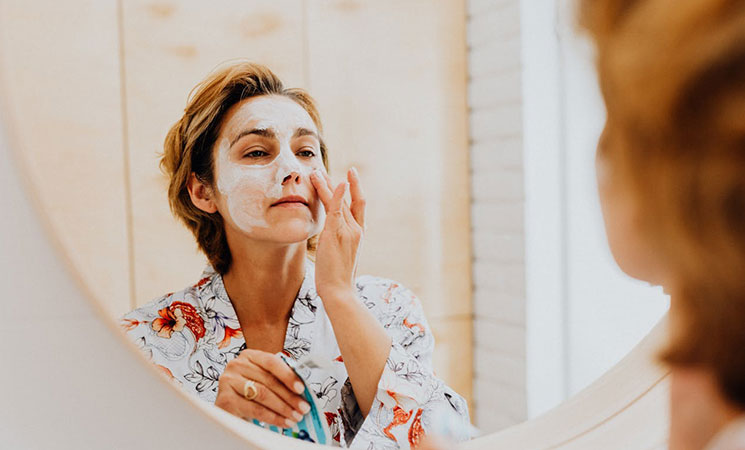According to Statista, The global anti-aging market was valued at around 62 billion U.S. dollars in 2021 and is expected to increase to some 93 billion by 2027.
The fountain of youth may be a myth, but that doesn’t mean we can’t age gracefully! Anti-aging solutions abound, from skincare routines to lifestyle tweaks. But with so many options, where do you even begin?
This guide dives deep into the world of anti-aging, offering essential tips to navigate your journey and achieve real results. We’ll explore everything from the best creams to proven practices, helping you develop a personalized plan to feel and look your best.
1. Understand the Basics of Aging
Before you can effectively combat the signs of aging, it’s crucial to understand the underlying mechanisms that drive the process. Aging is influenced by a combination of genetic, environmental, and lifestyle factors. On a cellular level, aging is marked by the gradual decline in cellular function and the body’s ability to repair itself. By comprehending these basic principles, you can tailor your anti-aging regimen to address specific concerns such as skin elasticity, fine lines, and changes in pigmentation, targeting the biological basis of aging rather than merely its superficial signs.
2. Set Realistic Expectations
No treatment can completely halt aging. They can only alleviate or diminish the signs. Results vary significantly among individuals due to differences in skin types, underlying health conditions, and genetic factors.
3. The Risks of Biopolymers
One of the more controversial anti-aging treatments involves biopolymers injections, often sought after for their immediate and cost-effective results in enhancing body contours. However, these injections come with significant risks. Complications can range from minor infections to severe reactions and the formation of hard, painful nodules that must be removed surgically. Due to these risks, it is essential that any removal of biopolymers is performed by experienced plastic surgeons who specialize in dealing with such complex issues. Their expertise ensures safer procedures and minimizes the potential for further complications.
4. Research the Treatment Options
The range of anti-aging treatments available today is broader than ever, encompassing everything from over-the-counter products to invasive surgeries. Before committing to any treatment plan, spend time researching the various options. Understand how different treatments work, such as the difference between a chemical peel and microdermabrasion, or the implications of invasive procedures versus non-invasive ones. Knowledge is power, and being well-informed will help you choose treatments that align best with your anti-aging goals and comfort level.
5. Consult with Qualified Professionals
Always seek the advice of qualified healthcare professionals before beginning any anti-aging treatment. Dermatologists and plastic surgeons can offer valuable insights into the most effective treatments for your skin type and age. They can also help identify any underlying health issues that might influence the effectiveness of treatments or pose risks.
6. Consider the Ingredients
The efficacy of non-invasive anti-aging treatments often boils down to the active ingredients involved. Familiarize yourself with key ingredients commonly found in anti-aging products, such as retinoids, which can help renew skin cells; peptides, which might stimulate collagen production; and antioxidants like vitamin C, which can protect skin from environmental damage. Understanding what these ingredients do will help you choose products that can truly make a difference in your skin’s health and appearance.
7. Lifestyle Factors That Accelerate Aging
While external treatments are beneficial, addressing internal factors is crucial for any anti-aging strategy. Certain lifestyle choices can accelerate the aging process, such as smoking, excessive alcohol consumption, poor diet, and lack of exercise. Smoking, for instance, impairs blood flow to the skin, leading to premature wrinkles and a dull complexion. Similarly, excessive alcohol can dehydrate the skin, while a poor diet lacking in essential nutrients can prevent your skin from combating oxidative stress effectively. Incorporating a balanced diet rich in antioxidants, maintaining regular physical activity, and avoiding harmful habits can significantly bolster the effectiveness of any anti-aging treatments and improve overall health.
8. Preventative Measures
Preventative care is perhaps the most effective strategy in any anti-aging regimen. Long-term exposure to sun, without adequate protection, can lead to premature aging, characterized by wrinkles, sunspots, and a leathery texture. Using broad-spectrum sunscreen daily, wearing protective clothing, and avoiding peak sun hours are essential steps. Additionally, staying hydrated helps maintain skin elasticity and moisture. Simple habits like using a gentle cleanser, moisturizing regularly, and applying eye cream can also make a substantial difference in maintaining youthful skin for longer.










